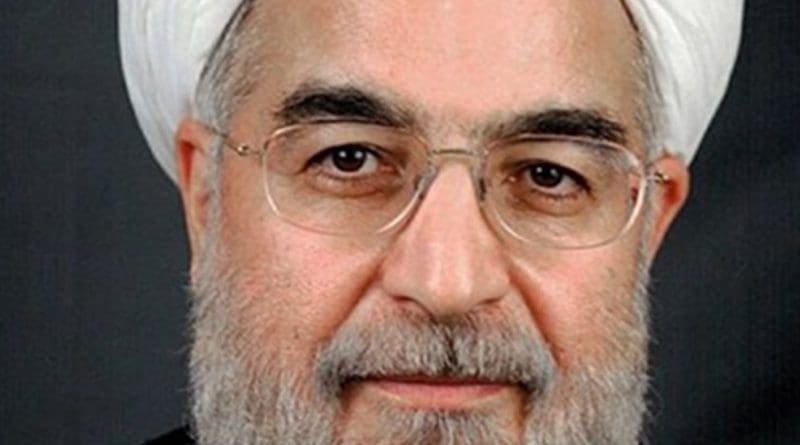Rouhani’s Resolute Yet Conciliatory Message To US – OpEd
On September 19th, in a closed-door session with several prominent members of the US media, Iran’s President Hassan Rouhani delivered a defiant yet conciliatory message to the United States.
Responding to various questions on the nuclear accord, Yemen, Syria, the Kurdish quest for independence, US-Iran relations, etc., Rouhani spoke confidently about the improving regional climate marked with the growing defeat of terrorist groups and the stability role played by Iran in the neighboring crises.
“Isn’t fighting terrorism our collective responsibility?” Rouhani asked rhetorically, adding that we “live in a chaotic region” and Iran takes credit for the current setbacks faced by the terrorist groups in Iraq and Syria. Defending Iran’s foreign behavior, Rouhani dismissed the US’ criticisms and openly wondered if the “deafening silence” on the Saudi atrocities in Yemen would be happening if it weren’t for the lucrative financial and military deals made between US and other Western governments with the Saudis, who are clueless about elections and participatory democracy.
With respect to the nuclear accord and the present US attempts to scuttle it, Rouhani began by reminding the audience of the long and arduous negotiations among seven nations, crediting the agreement to smart multilateral diplomacy, highlighting the accord’s benefits in terms of a “foundational shift” resulting in drastic improvement of relations between Iran and Europe in particular.
Stressing that only the UN’s atomic agency is responsible for verifying Iran’s compliance with the agreement, known as the Joint Comprehensive Plan of Action (JCPOA), Rouhani warned against any unilateral attempts to supplant the IAEA and issue arbitrary declarations on Iran’s (non) compliance.
Viewing the US sanctions as both ineffective and a “mistake,” Rouhani hinted at Iran’s choosing an alternative path should the Trump administration deliver on its threat to scrap the agreement. Yet, he fell short of stating that in a such a scenario Iran would abandon the historic agreement that was reached two years ago. Citing Iran’s improved trade relations with the rest of the world since the agreement, Rouhani predicted that in the event of a walkout by the US other countries would continue to do business with Iran in line with their own economic interests.
Portraying Iran’s defense build-up as purely defensive, Rouhani criticized the huge arms inflow to the region and viewed them as “destabilizing.” He cautioned against a runaway arms race in the region and counseled the Western governments to refrain from their addiction of arms sales to Iran’s neighbors in Persian Gulf.
On the question of Iraqi Kurd’s plan for a referendum, Rouhani was adamant that it was a “dangerous move” and could trigger unwanted instabilities and even “multiple wars” in the region. “This would create great tensions in the region,” Rouhani warned, predicting a “domino effect.”
In conclusion, Rouhani struck a defiant yet conciliatory message to the US that will likely be repeated on a grand scale on Wednesday when he takes up the podium at UN General Assembly a day after Trump’s speech interlaced with Iranophobic sentiments. What this means in terms of the deteriorating US-Iran relations will remain to be seen.

